
Diversity Representation in Australian News Organisations
According to the 2016 census, 50 percent of Australians were born overseas or had a parent born overseas (Tasevski, 2018). Census data also shows that almost one-quarter of Australians speak another language than English in their homes. Federal parliament, however, is unrepresentative of the diversity in Australia, with fewer than 20 of the 226 parliamentarians coming from a non-English speaking background.
Gender diversity is also a challenge in federal parliament, where only 23% of Liberal parliamentarians are female (Norman, 2019). Labor performs better with 47%. Only 4.1 percent of federal parliament are from a non-European background, compared to Australia’s 21% (Chiu, 2018). Australia’s parliament is one of the least diverse in the world, when compared to the United Kingdom, Canada and New Zealand.
The role of the media in Australia is to provide the electorate with objective and accurate reporting to enable voters to make informed decisions about their government. The importance of diversity in media stems from the representativeness of perspectives in the newsroom.
Media organisations today are still dominated by a largely Anglo-European majority. In their 2017-18 Equity and Diversity Annual Report, while ABC achieved its targets for gender diversity, with 54.2% of women employed in content maker roles, its targets for non-English speaking background (NESB) employees in executive roles (10.2%) were not met. And amongst NESB employees, European languages are also included, leading to an aggregate that does not identify non-Anglo-European ancestry. According to FECCA, at SBS, 42% of SBS employees are from a non-English speaking background, while 48% were born overseas and 13% identify as LGBTQI. 4% of SBS employees are Aboriginal or Torres Strait Islander and 1.1 per cent of employees have a permanent disability. These figures are well above the national average and represent a highly diverse workforce.
The overrepresentation of Anglo-Europeans in the media compounds the unrepresentativeness of government institutions and poses significant challenges in a democratic society like Australia. Mutuality, which is the measure of how representative an organization or institution is compared to the communities it serves, is crucial to building trust with the constituent base and developing policies that are culturally responsive to the unique needs of each demographic.
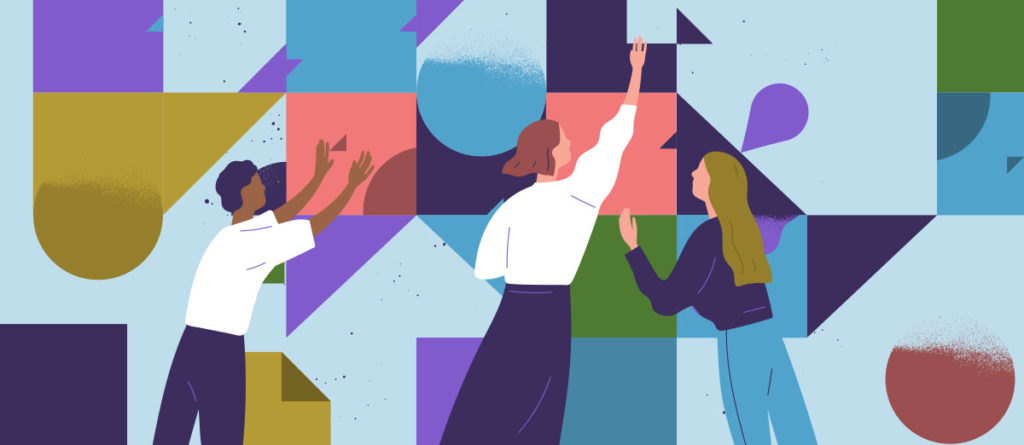
Take, for example, the reporting of African gangs in the media, which was sparked by comments made by a conservative cabinet member of the Federal Government, or the issue of Muslim integration, which was reported in the aftermath domestic terror incidents. The reporting in Australian media on issues relevant to minority communities is often skewed by unconscious bias and ethno-racial prejudices that are internalised as a function of colonial attitudes that reify Eurocentric notions of sociocultural privilege.
This is not to say that Anglo-European journalists are unable to impartially report on issues concerning minority communities, but rather a critique on how cultural homogeneity can often reproduce structural inequities across democratic institutions where cultural capital and the unique knowledge of minority experience are not adequately articulated as a core asset of governmental and media organisations.
Without a culturally balanced and diverse employee base, media organisations are prone to becoming culturally myopic and unable to relate to their readers in a way that fulfils their function as an impartial purveyor of information. Media institutions can greatly benefit from diversity by leveraging the cultural intelligence of their employees to create narratives that are informed by the experiences of the readership, without sacrificing objectivity.
Analysis of cultural diversity related articles from Australian news media
In December 2019, I had the opportunity to work with two young and motivated junior data scientists with a background in machine learning from the University of Melbourne. Dongsheng Jiang and Kun Li were instrumental completing an analysis of cultural diversity-related articles in Nine, SBS and ABC (on their online media) across the twelve month period spanning from February 2019 to February 2020. Dongsheng and Kun found that the term ‘cultural diversity’ was correlated towards the terms ’education’, ’language’, ’gender’, ’multicultural’, ‘disability’, ‘age’ and ‘race’ (see: Fig. 1).
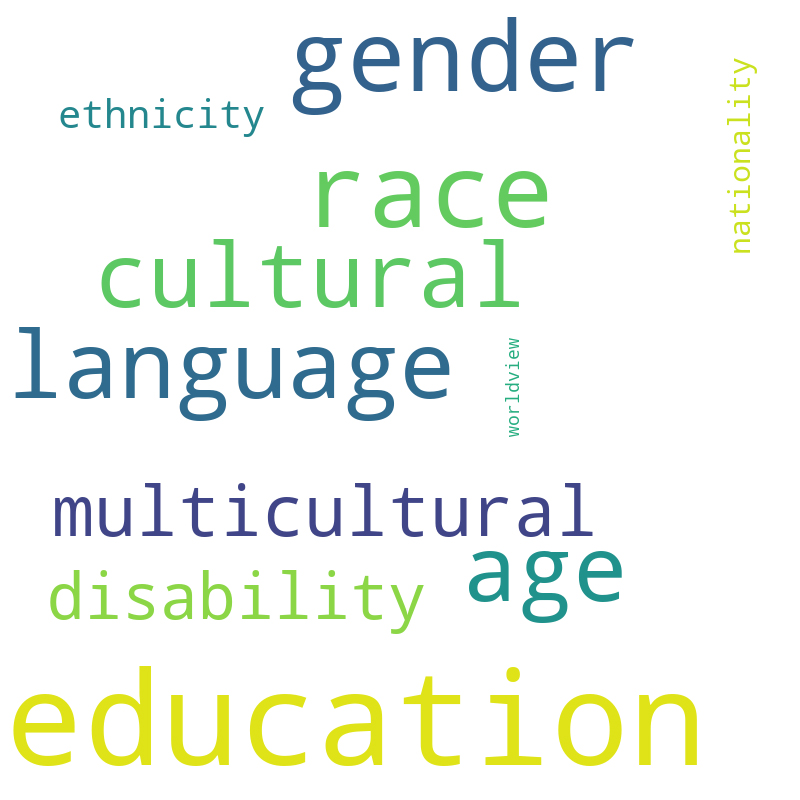
From Fig. 1, we can observe that education is the most correlated term with cultural diversity, which indicates that news media tend to mention education in the topic of cultural diversity. We can also see the factor worldview used by the Diversity Atlas is a very rare term on news. However, the term ’worldview’ is not a well-known term itself, it is a combination of multiple terms such as ’religious belief’ and ’political view’.
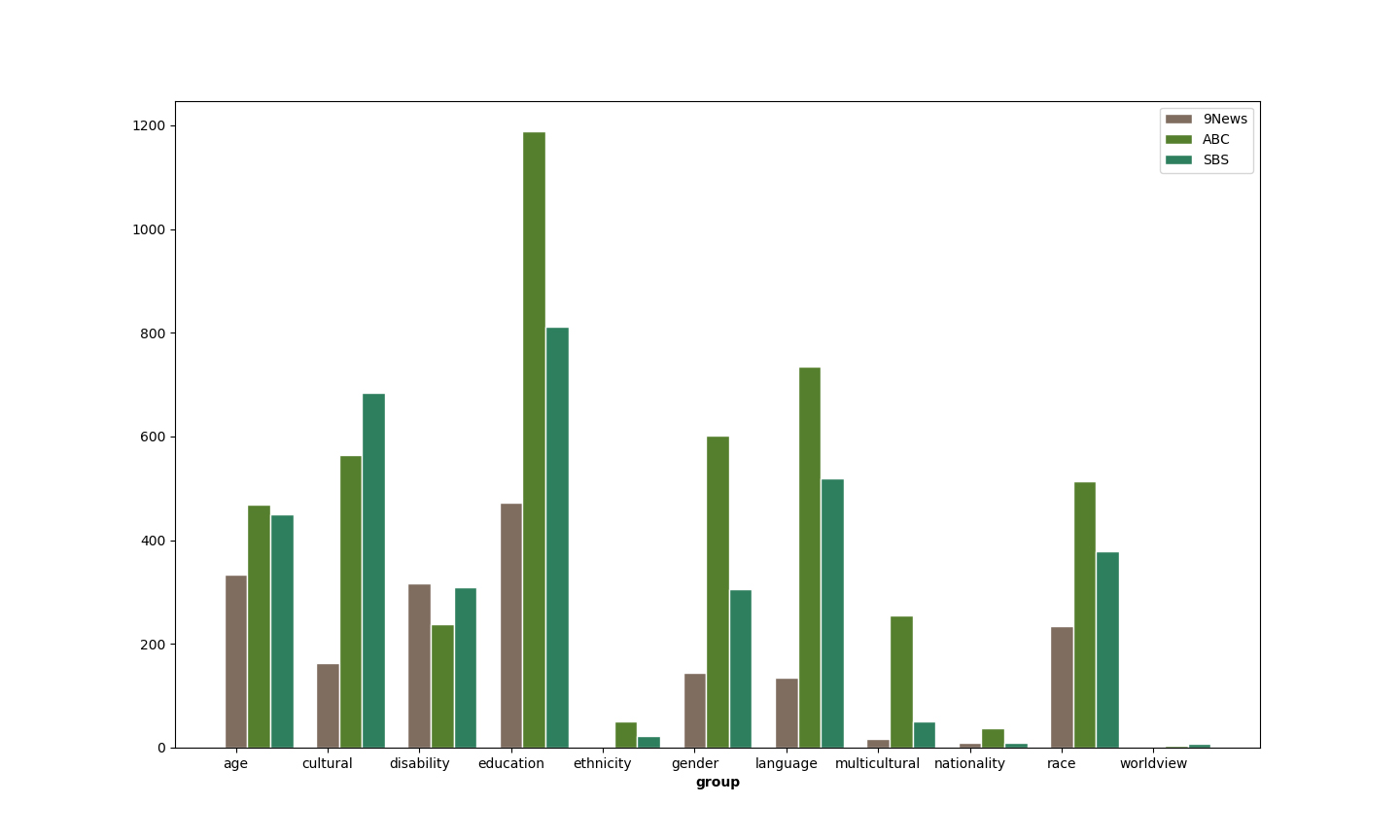
The study found that ABC has more stories on culturally related topics such as ’education’, ’language’, ’gender’, ’multicultural’, etc. SBS comes second with a top coverage of topic ’cultural’, and the Nine News showing the least interest in covering culturally related stories. ABC produced 727 stories that are related to cultural diversity over the past year, while Nine has only 257.
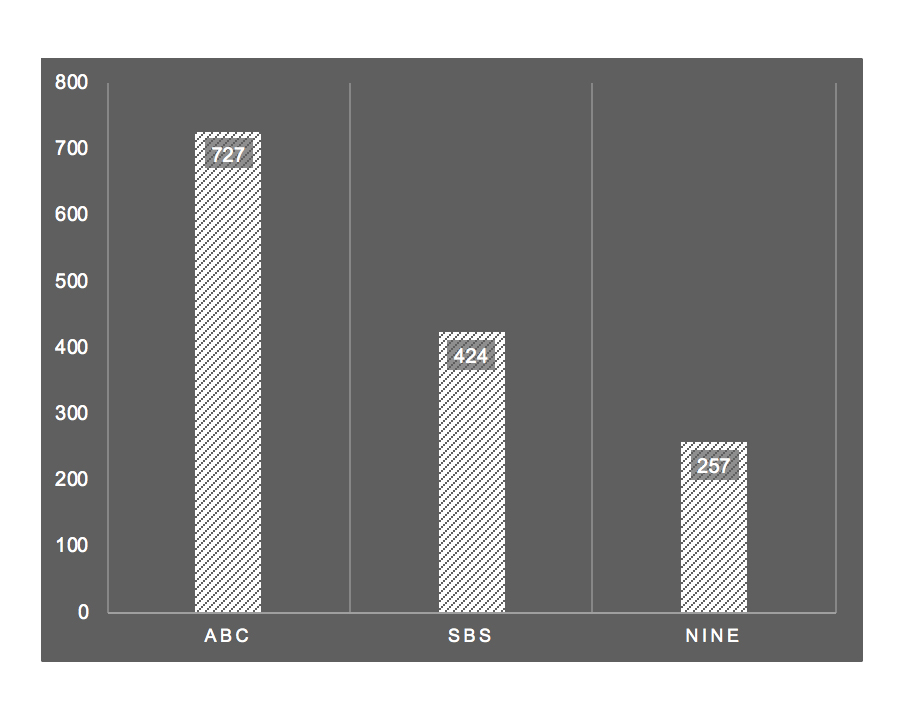
Although news media such as ABC and SBS produced at least a story a day related to the cultural diversity, on average, only 1.35% of news over the past year are related to the cultural diversity across three news media, with 2.31% from ABC news, 1.07% from SBS news, and only 0.66% from Nine news.
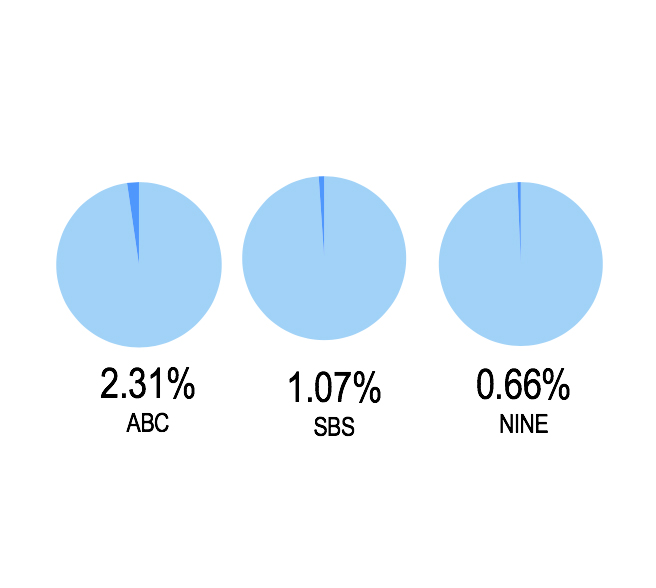
Alex Chung co-wrote this article with Rezza Moieni
Share this Post
